Author: Dr. S. Black
Institution: King’s College London, St. Thomas’ Hospital Vascular Surgery Department
Summary
Dr. S. Black’s presentation at LINC 2024 focused on the critical factors influencing venous stent implantation success, particularly the role of inflow disease in long-term outcomes. The study emphasized the importance of careful patient selection, thorough inflow vessel assessment, and management to prevent stent failure, as inflow disease is a major factor in poor post-operative patency rates.
Key Discussion Points
1.Patient Selection:
•The presentation highlighted the importance of selecting patients with significant symptoms for venous stenting. Leg swelling alone does not always justify stenting, and there is no evidence supporting stent use for preventing future deep vein thrombosis (DVT). Treatment should be reserved for patients with demonstrable venous lesions.
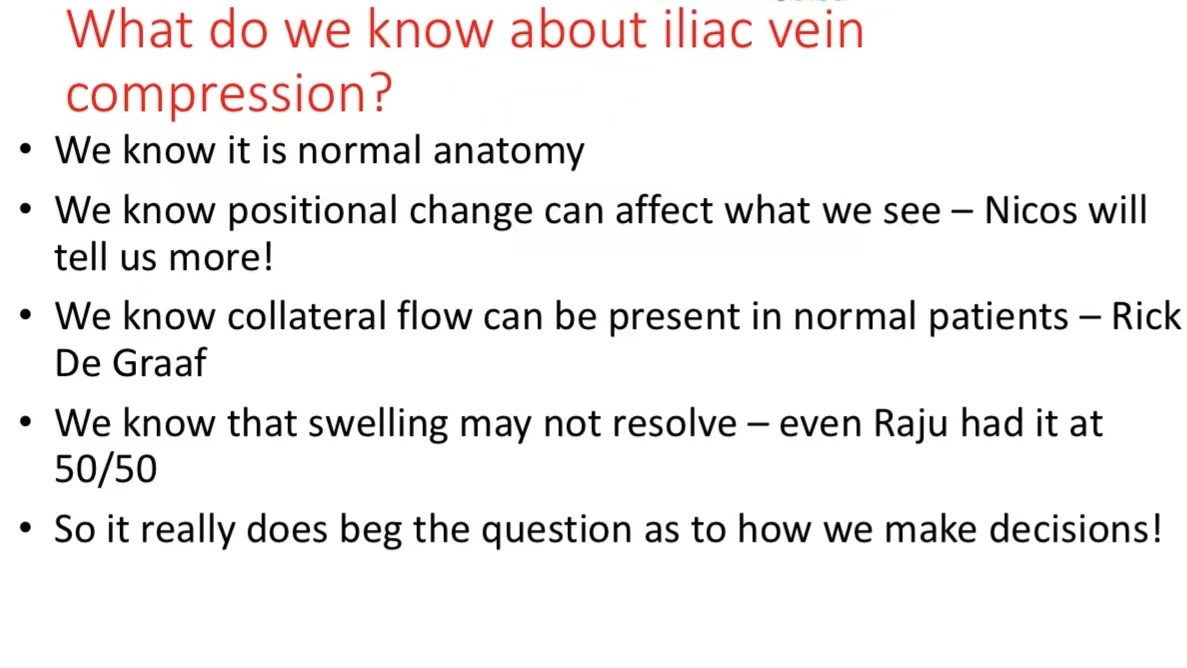
2.Impact of Inflow Disease:
•Inflow disease is the most significant factor contributing to stent failure. Multivariable analyses indicated that it is the primary determinant of stent patency. Thus, addressing inflow vessel issues during surgery is crucial for long-term success.
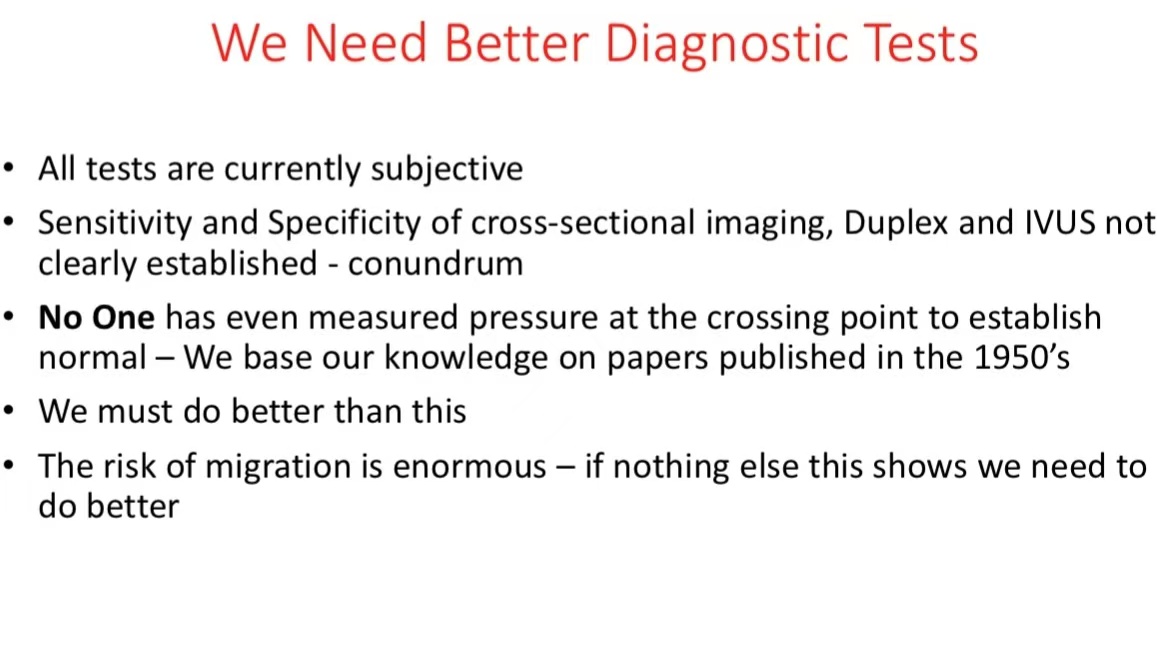
3.Stent Migration Risk:
•From 1994 to 2020, 54 stent migration incidents were reported, mostly involving small-diameter stents (≤14mm) or shorter stents (<90mm). these="" events="" were="" associated="" with="" increased="" morbidity="" and="" mortality="">
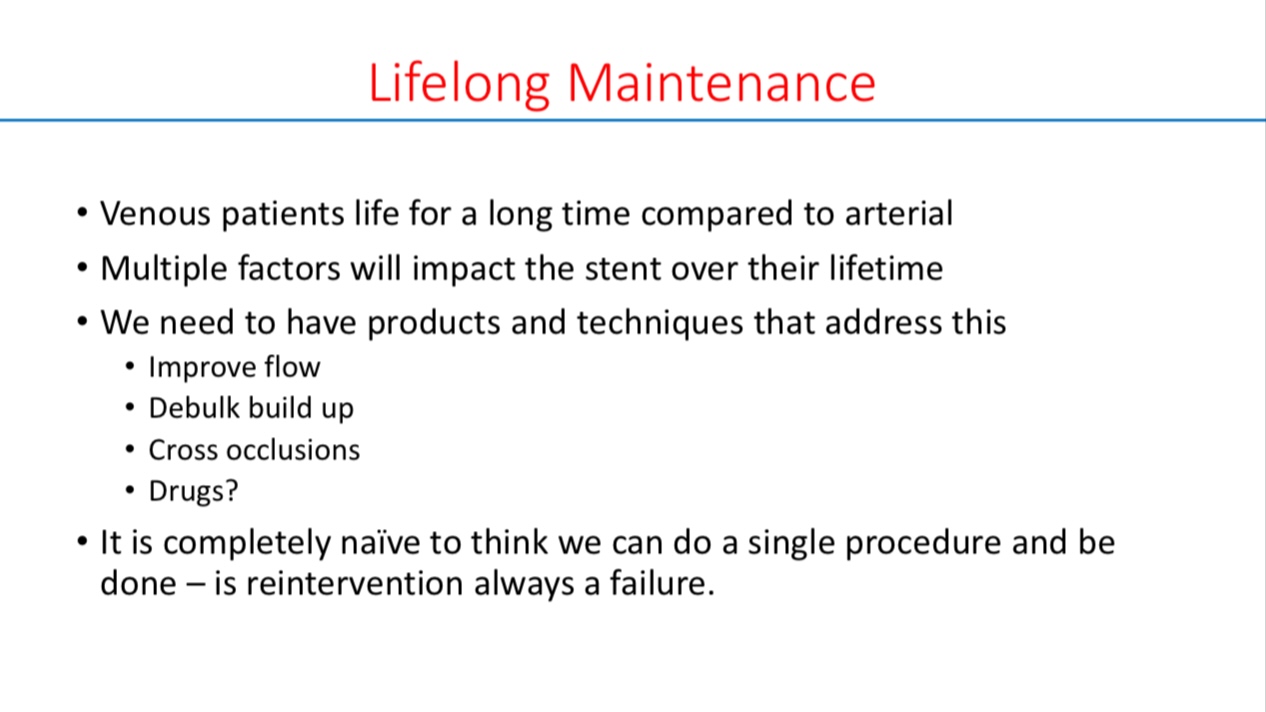
4.Causes of Stent Failure:
•Analysis from St. Thomas’ Hospital categorized stent failure causes into four groups, with inflow problems accounting for the largest proportion (48.3%). Repairing inflow disease is key to improving long-term stent patency.
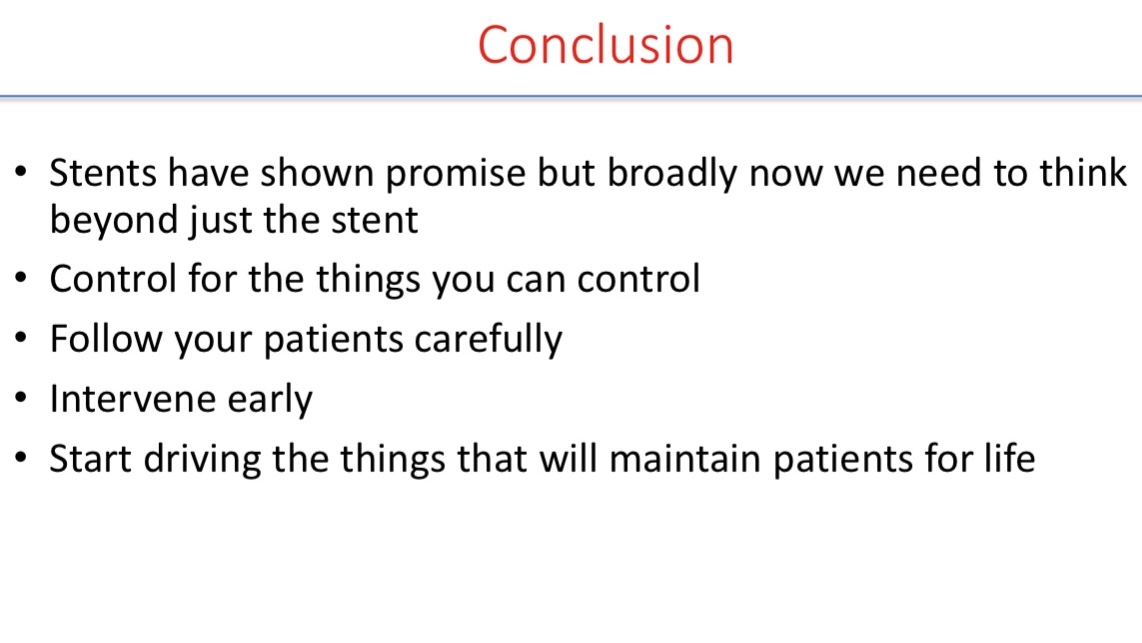
Case Study
•Case 1: A male patient experienced stent failure due to untreated inflow disease after stent placement for leg swelling. A subsequent reintervention, focused on correcting the inflow issues, improved the clinical outcome.
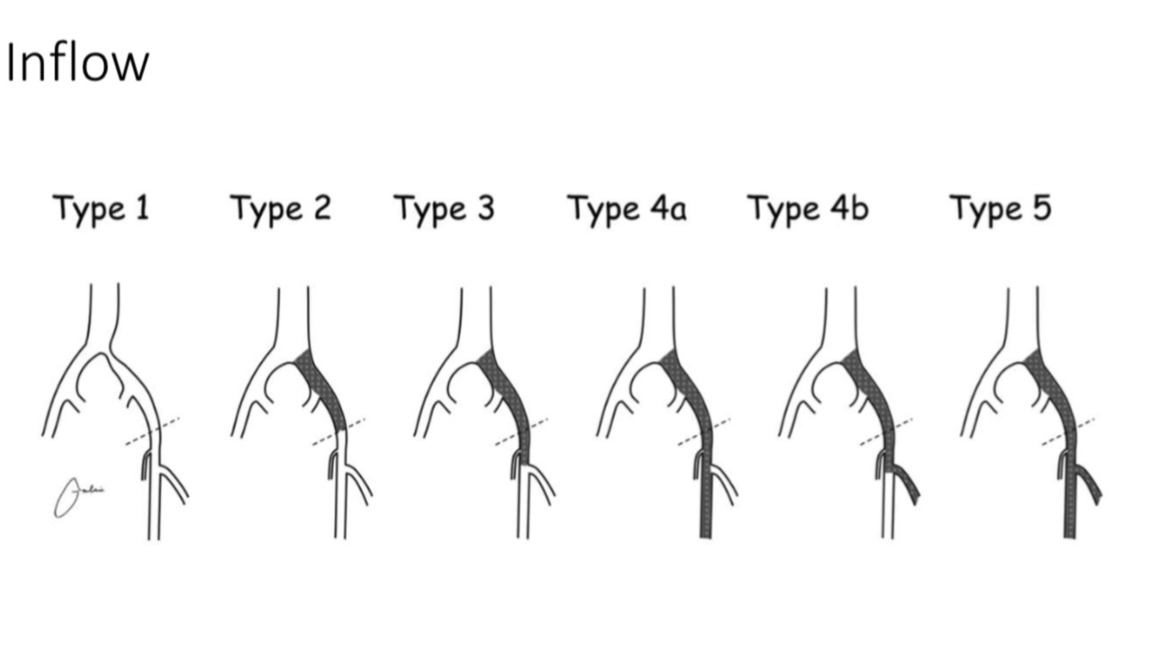
Conclusion
•Key Takeaways:
1.Successful venous stenting relies heavily on appropriate patient selection, thorough assessment of inflow disease, and diligent post-operative follow-up.
2.Stent migration remains a concern, especially with small and short stents, highlighting the importance of careful stent choice and placement.
3.Addressing inflow disease in complex cases is critical, necessitating advanced diagnostic tools and techniques for better patient management.

Contact Us
For submissions, please contact us at: endovascluar@simtomax.cn
For more international information, visit:
•Facebook: Vasco Knight
•Instagram: knight_vasco
Let’s continue safeguarding health and showcasing your excellence globally!


